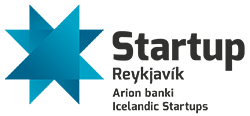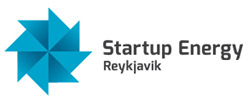How Arion Bank Started Investing in Startups
Building a startup ecosystem in Iceland from scratch
Since 2012, Arion Bank has invested in 80 startups in various industries. At the time, the need for a structured approach and organized startup programs was strong in Iceland. Together with leading supporting entities in Iceland, Arion Bank founded the Startup Reykjavik and Startup Energy Reykjavik startup programs which help startups shape their businesses through these seed stage, mentor driven programs. The programs have helped the startup community flourish with a more far-reaching impact than originally anticipated.
Iceland experienced tough times in the years after the 2008 financial crisis. The three local commercial banks went bankrupt, the local currency plummeted, unemployment rose and the state finances were in ruins. The whole of Icelandic society was impacted.
This story is familiar to all or most of the Western world. In the dot com era in the last years of the 20th century many startups were formed and almost as many vanished in the early 21st century. In the years to come, interest in startups was minimal. The culture of failure was engrained into the minds of investors and others. Despite rapid technological advances, businesses and consumers were busy in the next few years consuming the cheap debt which was freely available to most people. The 2008 meltdown was a realization, a wake-up call. Value creation was needed in order to sustain the desired growth of economies, locally and globally.
Ample talent was available from 2008. Unemployed software engineers, designers, developers and marketing personnel were in dire need of building a new career, or just achieving plain economic survival. Yet, starting a company, building it from scratch is different to having a (not so) secure job. The learning curve is steep and the same or similar methods need not apply in a startup of three founders vs. a corporate of >500 employees.
For a startup the most important issue is time from execution to revenue creation or external funding in the form of investment. Many startups were formed in the uncertain years of 2009 and 2010. But new methodology and structure was to some extent needed.
 Many communities experienced this need. In 2011, a book, The Lean Startup by Eric Ries, was published and in the following year, the methodology of Business Model Canvas was introduced. In short, these ideologies changed to a large extent how startups approach their product development. The general notion is that, in particular, companies with scalable business ideas should focus on developing a Minimum Viable Product (MVP), gain instant feedback from customers and iterate the process until it is ready for the masses. The key is to fail often and fast and learn from the whole iterative process.
Many communities experienced this need. In 2011, a book, The Lean Startup by Eric Ries, was published and in the following year, the methodology of Business Model Canvas was introduced. In short, these ideologies changed to a large extent how startups approach their product development. The general notion is that, in particular, companies with scalable business ideas should focus on developing a Minimum Viable Product (MVP), gain instant feedback from customers and iterate the process until it is ready for the masses. The key is to fail often and fast and learn from the whole iterative process.
While startups were being founded in the wake of the 2008 events, there was little support in most communities. The need only grew larger year by year. The adoption of the Lean startup methodology spread. Incubators and co-working spaces with support for the startups were established in many places. The biggest change was, however, the rapid formation of seed stage, mentor driven business accelerators around the world. Modern day accelerators emerged in 2005 with the launch of Y-Combinator, followed closely by Techstars in 2006. Shortly thereafter, several other stakeholders decided to follow their approach of a limited duration program for cohorts of early-stage entrepreneurs, with the aim to facilitate connections with potential investors. The number of business accelerator programs worldwide is still growing.

The Business Model Canvas
The first accelerator in Iceland
 Arion Bank decided in 2012 to become a strong benefactor and stakeholder in building a healthier startup ecosystem inIceland. The Bank did so by establishing Iceland’s first business accelerator, Startup Reykjavik (SR), a seed stage, mentor driven business accelerator, in a joint venture with Icelandic Startups, a supporting entity to local startups. Annually, ten companies are chosen from an application pool and receive $22,000 in seed funding in exchange for 6% of the equity in each. The program runs for three months where the teams sit in a joint facility and meet dozens of mentors from the Icelandic and non-Icelandic business community, ranging from C-suite management, investors, entrepreneurs and academia. The goal is to speed up the process where each company becomes sustainable by aiding them in producing their first Minimum Viable Product (MVP), iterate and seek continuous feedback from customers. In short, this is the lean startup methodology in a nutshell. Since inception, over 80% of the participant companies have focused on niched software or hardware solutions and the remainder on various verticals. A vast majority has little or no relation to financial services.
Arion Bank decided in 2012 to become a strong benefactor and stakeholder in building a healthier startup ecosystem inIceland. The Bank did so by establishing Iceland’s first business accelerator, Startup Reykjavik (SR), a seed stage, mentor driven business accelerator, in a joint venture with Icelandic Startups, a supporting entity to local startups. Annually, ten companies are chosen from an application pool and receive $22,000 in seed funding in exchange for 6% of the equity in each. The program runs for three months where the teams sit in a joint facility and meet dozens of mentors from the Icelandic and non-Icelandic business community, ranging from C-suite management, investors, entrepreneurs and academia. The goal is to speed up the process where each company becomes sustainable by aiding them in producing their first Minimum Viable Product (MVP), iterate and seek continuous feedback from customers. In short, this is the lean startup methodology in a nutshell. Since inception, over 80% of the participant companies have focused on niched software or hardware solutions and the remainder on various verticals. A vast majority has little or no relation to financial services.  In 2014, Startup Energy Reykjavik (SER) was established. The same principles and methodology apply, yet this time only seven companies participate and their business needs to have an energy or energy related focus.
In 2014, Startup Energy Reykjavik (SER) was established. The same principles and methodology apply, yet this time only seven companies participate and their business needs to have an energy or energy related focus.While SR and SER have a clear social or community aspect initially from the Bank‘s side, the investment aspect should at least be sustainable on a long-term basis.
Matchmaking with investors
During the program, the startups receive hands-on guidance on tweaking and adjusting their business model. Each team meets dozens of mentors who reflect upon the startups’ business and open up their personal networks, practical seminars and workshops are hosted along with open meetings and lectures for everyone interested in the community.A critical component is the final day, Demo Day, where the startups pitch their business to investors in the form of a seven minute presentation. It is then the startups’ responsibility to follow up on the interest shown on Demo Day.
Since 2012, the participants have received over ISK 3.6 billion (€29M) in funding post-acceleration. Many are currently revenue generating and in their growth phase. One company was acquired by Klappir that was listed on Nasdaq First North Stock Exchange in 2017.
On behalf of the Bank, the investment in each company is made through the Bank’s subsidiary. On rare occasions, a follow-up investment has been made. The Bank takes no operational or managerial role in the startups. It is a silent and patient investor that supports the startups when asked for guidance. Arion Bank also understands that building a sustainable and viable company takes time, usually 5-10 years. This requires good cooperation and communication with the founders, business angels (private investors) and venture capital funds that invest in the companies over time.
Positive impact on the local ecosystem
The local startup ecosystem in Iceland has improved substantially since the beginning of the decade. The foundation of the two accelerators is one of the factors contributing to this positive development. But there are many other factors weighing in: more incubators and co-working spaces, the number of startups founded, the number of relevant high content conferences, better international networks, structure and access to support, access to private and federal funding, more friendly legislation for founders, investors and startups, greater interest among the media and therefore the general public have all accelerated and benefitted an improving ecosystem for early and growth stage startups in Iceland.Recognition beyond Iceland
Business accelerators or startup programs are a vital component of a thriving local startup and entrepreneurial ecosystem. The Nordic Startup Awards are intended to praise both the skills and potential of startups, founders and supporting entities in the Nordic countries. In 2015 and 2017, Startup Reykjavik was awarded the title “Best Accelerator Program” in Iceland and in 2015 it was recognized as the “Best Accelerator Program” in the Nordics. Additionally, many founders and startups in the SR and SER portfolio have received recognition for their work at the Nordic Startup Awards.Investor landscape in Iceland
Prior to 2015, there was essentially only one venture capital fund operating in Iceland – the federal evergreen fund New Business Venture Fund. Today, there are four additional funds operating in Iceland, three founded in 2015 and one in 2017. Eyrir sprotar, Brunnur Ventures and Crowberry Capital all invest in the early stages while Frumtak Ventures invests in growth companies. Arion Bank is the largest shareholder in Eyrir sprotar. The diagram describes the early stage investor landscape in Iceland. There are five operating venture capital funds in Iceland and several private equity funds that are primarily managed by the largest asset management companies in Iceland.Give Before You Get
Arion bank is proud of its contribution to building a thriving startup ecosystem. Enabling startup founders to pursue their vision and dreams is rewarding. Supporting startups has now become ofe of the pillars of the Bank's social responsibility efforts. A fundamental belief is that "give before you get" will benefit one in the long term. The Bank's support has also increased empoyees' awareness and interest in this previously neglected but important industry where ideation and value creations is the goal.

About Iceland
Situated in the North Atlantic Ocean between Europe and the United States, Iceland is a European country with 330,000 inhabitants. The capital and largest city is Reykjavik. Two thirds of the country's population live in the Greater Reykjavik area. Iceland, as other Nordic countries, ranks high in economic, political and social stability and equality.
Icelandic citizens are early adopters when it comes to technology and technical infrastructure is good where 97% of residentials have access to internet. Iceland ranked number six globally in terms of GDP per capita in 2016 according to the International Monetary Fund.
About Iceland on iceland.is
Participant Companies are Diverse
Participant Companies are Diverse
Below is a selection of a few companies that have participated in SR and SER since inception.The startups that have participated in Arion Bank’s startup programs are highly diverse in terms of industries, although around 50% are software related. The portfolio companies of Startup Reykjavik and Startup Energy Reykjavik give a good insight into the Icelandic startup scene that has improved substantially in recent years.
